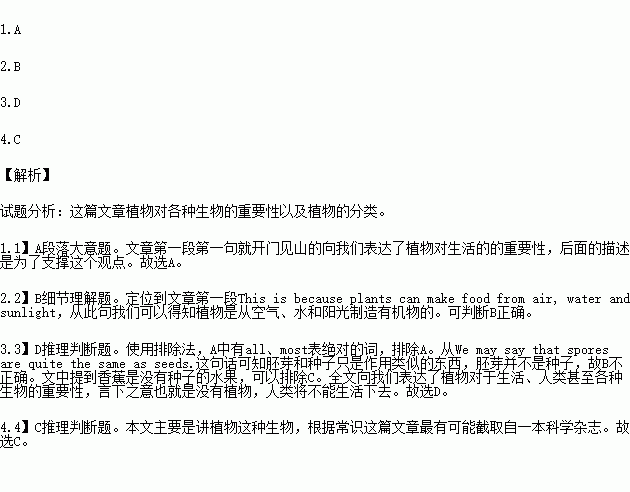题目内容
Plants are very important living things. Life could not go on if there were no plants. This is because plants can make food from air, water and sunlight. Animals and man cannot make food from air, water and sunlight. Animals get their food by eating plants and other animals. Therefore animals and man need plants in order to live. This is why we find that there are so many plants around us.
If you look carefully at the plants around you, you will find that there are two kinds of plants: flowering plants and non-flowering plants. Flowering plants can make seed. The seeds are protected by the fruits. Some fruits have one seed, some have two, three or four, and some have many seeds. But a few fruits have no seeds at all. An example of a fruit without seeds is the banana fruit. Most non-flowering plants do not grow from seeds. They grow from spores (胚芽). Spores are very small. Some spores are so small and light that they can float in the air. We may say that spores are quite the same as seeds. When these spores are all on wet and shady places, they usually grow into new plants.
1.The main idea of the first paragraph is that ______.
A. plants are important for life
B. plants cannot grow without air
C. there are many plants in the world
D. we can’t live without water
2.Plants can make food from _______.
A. flower, water and air B. water, sunlight and air
C. air, water and soil D. air, sun and light
3.What can we infer from the passage?
A. Of all living things animals are most important.
B. Spores are seeds.
C. All fruits of flowering plants have seeds.
D. Without plants, man will die out.
4.This passage may be taken from ______.
A. a medicine book B. a novel
C. a science magazine D. an experiment report

